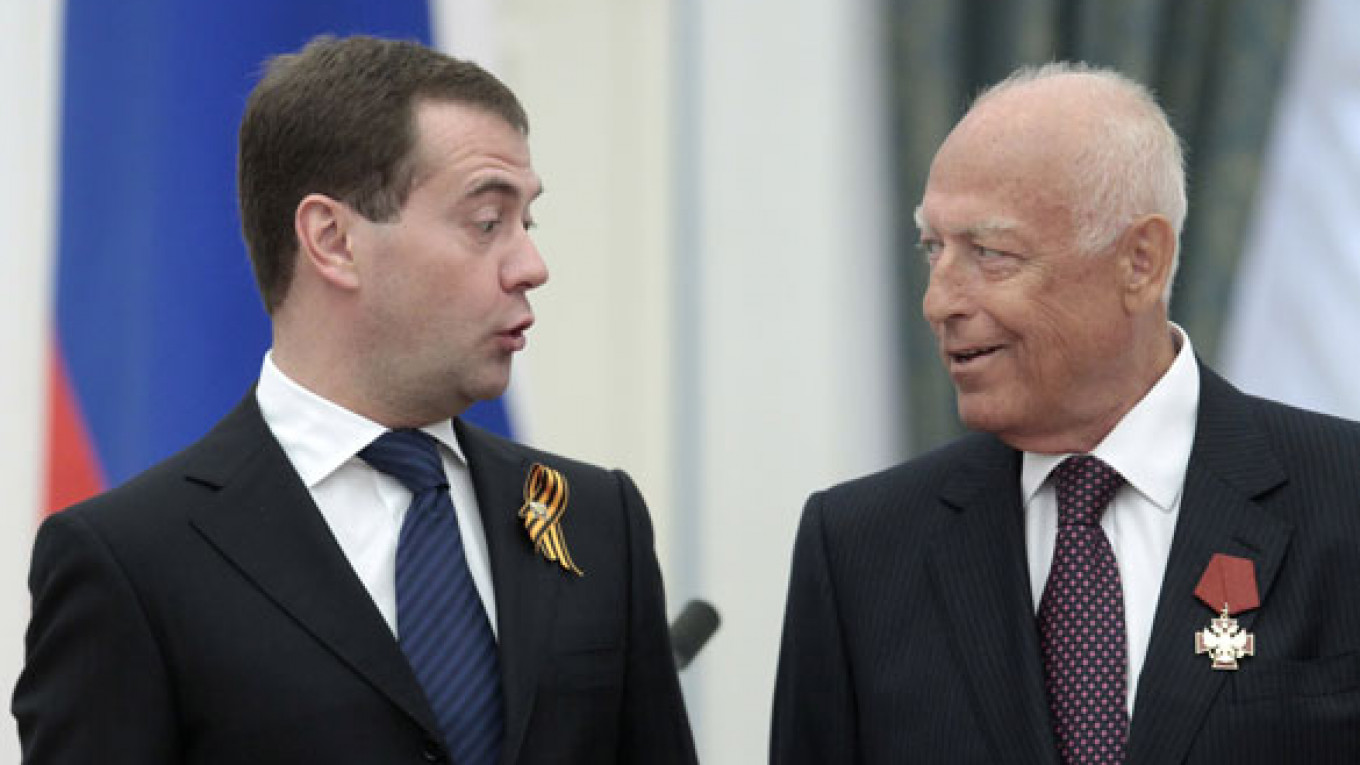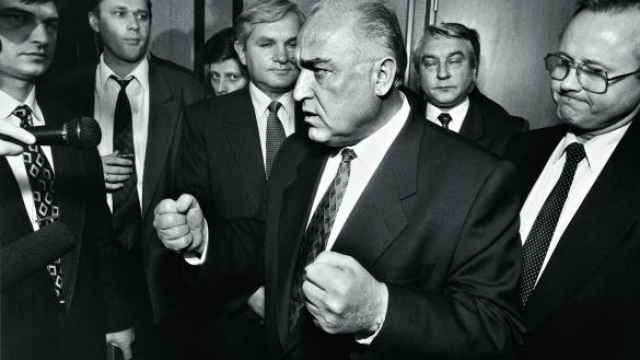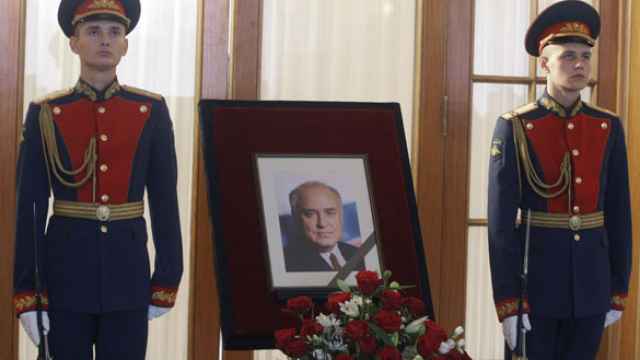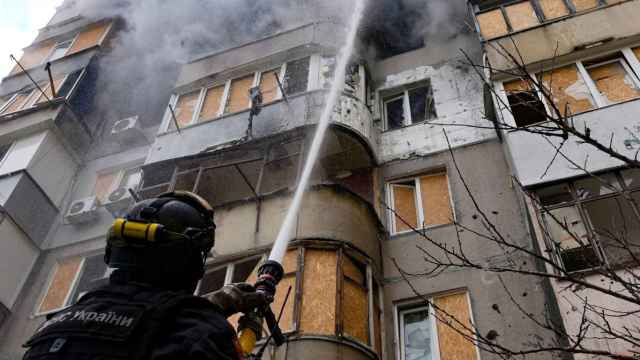Viktor Chernomyrdin, who founded the world's biggest gas company and helped steer Russia through the chaos that followed the collapse of the Soviet Union, died Wednesday at at age 72.
The longest serving prime minister in post-Soviet Russia, Chernomyrdin played a decisive role in supporting former President Boris Yeltsin during some of the darkest moments of the 1990s, negotiating with Chechen rebels and even holding the reins of power while Yeltsin underwent heart surgery in 1996.
The former mechanic will go down in history for his creation of the globe's largest gas corporation, Gazprom, which holds 17 percent of the world's natural gas reserves and is by far the Kremlin's most powerful economic tool on the world stage.
President Dmitry Medvedev and Prime Minister Vladimir Putin expressed their condolences to Chernomyrdin's family and friends. The Kremlin said he died during the early hours Wednesday but did not give the cause of death.
Friends said his health had deteriorated sharply after the death in March of his wife, Valentina, with whom he had lived for almost 50 years. On Friday, he was buried beside her in Moscow's Novodevichy Cemetery after a state funeral.
As head of the Soviet Gas Ministry, Chernomyrdin foresaw the importance of the market as the Soviet Union crumbled. In 1989, he folded the Soviet Union's most lucrative gas assets into a new concern, Gazprom.
Months after he was appointed prime minister by Yeltsin in late 1992, Chernomyrdin signed a decree turning Gazprom ― which pumps the lifeblood of Russia's economy from the Arctic and Siberia to Europe and Asia ― into a joint stock company.
During his tenure as prime minister, he was a loyal adviser to Yeltsin with legendary charm and nerves of steel.
When Yeltsin ordered troops to crush a parliament-led mutiny on Oct. 4, 1993, it was Chernomyrdin who kept the government operating behind the scenes.
Chernomyrdin angered Kremlin hardliners when he negotiated with Chechen guerrillas in front of the world's television cameras to end a hostage crisis in the southern city of Budyonnovsk in 1995.
In one of Russia's most humiliating moments, he agreed to halt military action in Chechnya and give the attackers safe passage back to Chechnya in exchange for the release of more than 1,000 hostages.
When Yeltsin underwent a seven-hour heart operation in November 1996, Chernomyrdin was briefly made acting president and given control of the nation's nuclear codes.
He was sacked as prime minister in March 1998. Yeltsin tried to bring him back to deal with a financial crisis in August of that year, but parliament refused to approve his appointment.
Initially known as a gray, Soviet-style gas official, Chernomyrdin aroused nationwide amusement with blunt and often grammatically incorrect quips.
He once told opponents: "If your hands are itchy, scratch yourself on other spots." His most famous soundbite, made about financial reforms, was that "we wanted it to be better, but it turned out as usual."
The phrase symbolized for a generation of Russians the failures of the transition from communism to a corruption-riddled market economy.
Gazprom was no stranger to corruption and minority shareholders repeatedly complained in the 1990s about asset stripping under Chernomyrdin's ally, Rem Vyakhirev.
When Putin came to power, he took action to regain control of Gazprom, appointing a little-known Kremlin official, Dmitry Medvedev, as the gas giant's board chairman and replacing Vyakhirev with ally Alexei Miller. Miller continues to lead Gazprom as its chief executive.
Chernomyrdin served as ambassador in Kiev from 2001 to 2009, a key position as disputes over gas prices between Gazprom and Ukraine disrupted supplies to European customers.
Putin and Medvedev viewed Gazprom as a way to claw back some of the influence Russia had lost with the Soviet collapse, and Gazprom's position as the behemoth of the gas market gave the Kremlin a seat at the head table of global energy politics.
See "Viktor Chernomyrdin: Life in the Lens," a photo gallery of Chernomyrdin's two decades in Russian politics.
A Message from The Moscow Times:
Dear readers,
We are facing unprecedented challenges. Russia's Prosecutor General's Office has designated The Moscow Times as an "undesirable" organization, criminalizing our work and putting our staff at risk of prosecution. This follows our earlier unjust labeling as a "foreign agent."
These actions are direct attempts to silence independent journalism in Russia. The authorities claim our work "discredits the decisions of the Russian leadership." We see things differently: we strive to provide accurate, unbiased reporting on Russia.
We, the journalists of The Moscow Times, refuse to be silenced. But to continue our work, we need your help.
Your support, no matter how small, makes a world of difference. If you can, please support us monthly starting from just $2. It's quick to set up, and every contribution makes a significant impact.
By supporting The Moscow Times, you're defending open, independent journalism in the face of repression. Thank you for standing with us.
Remind me later.






